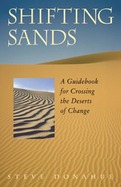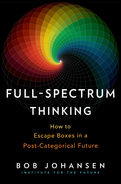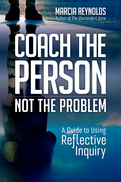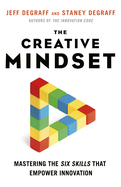2011
“Turner tells fascinating stories of unlikely heroes and explains difficult legal issues clearly and concisely, educating and entertaining at the same time.”—Elizabeth Farnsworth, The PBS News Hour
Recounting controversial First Amendment cases from the Red Scare era to Citizens United, William Bennett Turner shows how weve arrived at our contemporary understanding of free speech. His strange cast of heroes and villains, some drawn from cases he has litigated, includes Communists, Jehovahs Witnesses, Ku Klux Klansmen, the worlds leading pornographer, prison wardens, dogged reporters, federal judges, a computer whiz, and a countercultural comedian. This is a fascinating look at how the scope of our First Amendment freedoms has evolved and the colorful characters behind some of the most important legal decisions of modern times.
2004
We live in a culture, Donahue writes, which loves "climbing mountains." We want to see the peak, map out a route, and follow it to the top. Sometimes this approach works, but not always, particularly when we are enduring a personal crisis-divorce, job loss, addiction, illness, or death. We may not know exactly where we are going, how to get there, or even how we'll know we've arrived.
And it's not just in times of crisis. There are many deserts in our lives, situations with no clear paths or boundaries. Finding a job is usually a mountain, but changing careers can be a desert. Having a baby is a mountain, especially for the mom. But raising a child is a desert. Battling cancer is a mountain. Living with a chronic illness is a desert.
In the desert, we need to follow different rules than we follow when conquering a mountain. We need to be more intuitive, more patient, more spontaneous. Donahue outlines six "rules of desert travel" that will help us discover our direction by wandering, find our own personal oases, and cross our self-imposed borders.
"The sun appears like a silent explosion, a slow motion fireworks display dazzling the volcanic crags of the Hoggar. I stand up and walk to the path and begin descending to Klaus' car. I've made my decision. Tallis and I will travel, somehow, to Agadez. I don't have a logical explanation for my decision or a plan to get to the last oasis. I know I am on the right journey-I am following my compass."
Shifting Sands shows us how to slow down, reflect, and embrace the changes of life graciously, naturally, and courageously.
• Uses the gripping real-life story of the author's journey across the Sahara as a compelling metaphor for understanding difficult and uncertain times
• Offers six rules of desert travel to help readers gracefully cross their own personal deserts
2005
- Presents an original analysis of what the real sources of power are in America today
- Reveals the tactics used by corporate interests to wield hidden power
- Offers detailed strategic advice for how the Democrats can unite with grassroots social movements and form a powerful coalition for fundamental change
- Thom Hartmann, Air America radio host and bestselling author of Screwed, says "Hidden Power is the must-read book of the year. Buy three copies, at least, because you'll want to share a few with friends, and will never want to part with your own well-marked-up copy." read the full review
The future will get even more perplexing over the next decade, and we are not ready. The dilemma is that we're restricted by rigid categorical thinking that freezes people and organizations in neatly defined boxes that often are inaccurate or obsolete. Categories lead us toward certainty but away from clarity, and categorical thinking moves us away from understanding the bigger picture. Sticking with this old way of thinking and seeing isn't just foolish, it's dangerous.
Full-spectrum thinking is the ability to seek patterns and clarity outside, across, beyond, or maybe even without any boxes or categories while resisting false certainty and simplistic binary choices. It reveals our commonalities that are hidden in plain view. Bob Johansen lays out the core concepts of full-spectrum thinking and reveals the role that digital media—including gameful engagement, big-data analytics, visualization, blockchain, and machine learning—will play in facilitating and enhancing it. He offers examples of broader spectrums and new applications in a wide range of areas that will become possible first, then mandatory. This visionary book provides powerful ways to make sense of new opportunities and see the world as it really is.
“Coaches rely far too much on asking open-ended questions,” says Marcia Reynolds. But questions only seek answers—inquiry provides insight. When, instead of just questions, clients hear their thoughts, opinions, and beliefs spoken by someone else, it prompts them to critically consider how their thinking affects their goals. Reynolds cites the latest brain science to show why reflective inquiry works and provides techniques, tips, and structures for creating breakthrough conversations.
This book will free coaches from the cult of asking the magical question by offering five essential practices of reflective inquiry: focus on the person, not the problem; summarize what is heard and expressed; identify underlying beliefs and assumptions; unwrap the desired outcome; and articulate insights and commitments. Using these practices, combined with a respectful and caring presence, helps create a space where clients feel safe, seen, and valued for who they are. Coaches become change agents who actively recharge the human spirit. And clients naturally dive deeper and develop personalized solutions that may surprise even the coach.
2020
—Mitch Jacobson, Executive Director, Austin Technology Incubator, UT Blackstone LaunchPad, University of Texas at Austin
Nearly all of today's major innovation workshops and programs call on organizations to drive innovation. What they miss is that innovation comes from the personal creativity of individuals. And creativity doesn't require an advanced education or technical skills—all employees can be creative. Often, all they lack is a fitting mindset and the right skills.
The Creative Mindset brings how-to advice, tools, and techniques from two master innovators who have taught and worked with over half of all Fortune 500 companies. Jeff and Staney DeGraff introduce six essential creative-thinking skills that can be easily mastered with limited practice and remembered as the acronym CREATE: Concentrate, Replicate, Elaborate, Associate, Translate, and Evaluate. These six skills, sequenced as steps, simplify and summarize the most important research on creative thinking and draw on over thirty years of real-world application in some of the most innovative organizations in the world.
It's time to rethink the way we make innovation happen. Individual creativity is an immense untapped resource, and you don't have to be Beethoven to make a big difference. As the spirit of chef Gusteau proclaims in the Pixar classic Ratatouille, “Anyone can cook.”
















